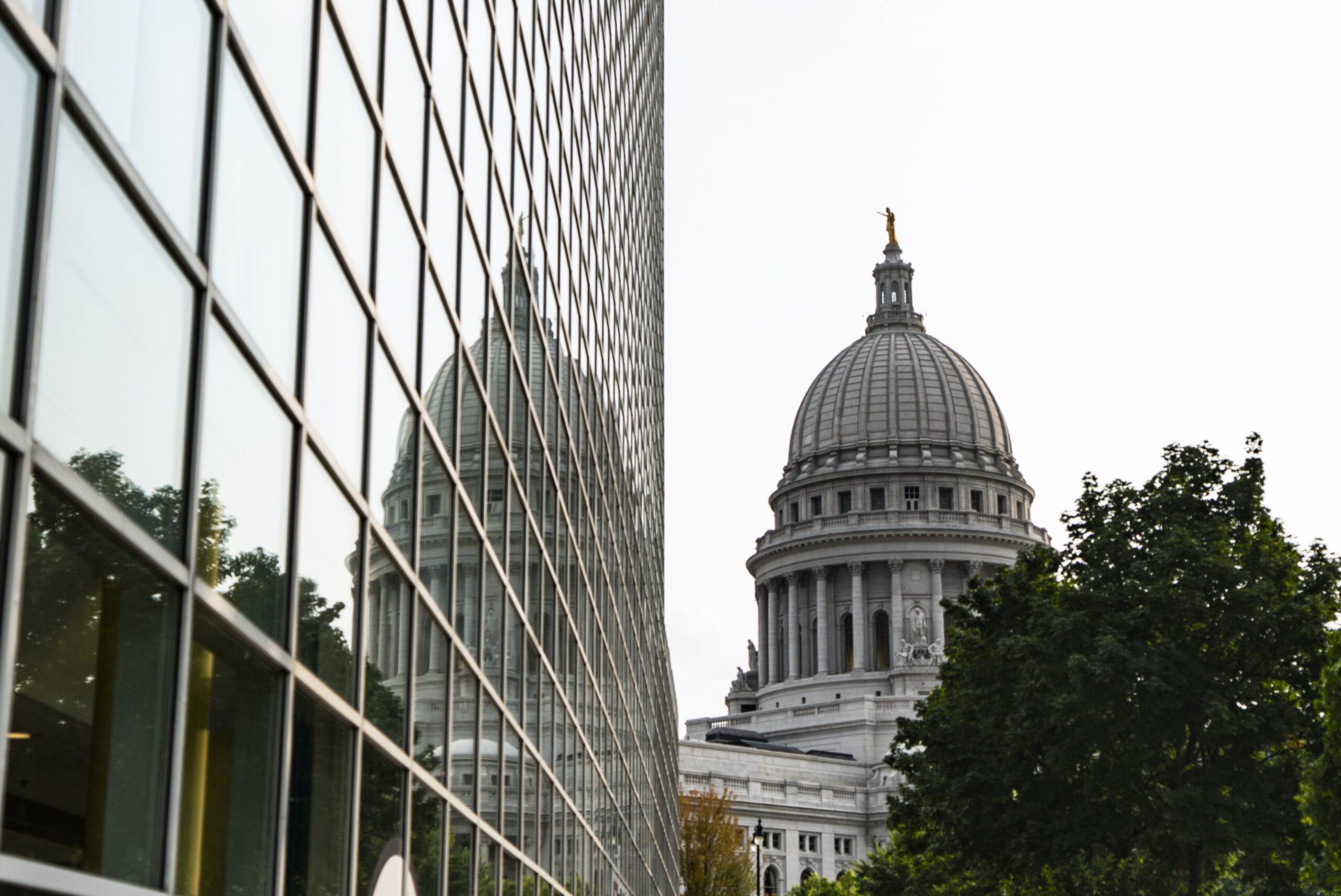
by Beata Wierzba | Nov 22, 2023 | Advocacy, Community Solar, Electric Vehicles, Legislative Watchlist, Local Government, Policy, Solar
RENEW Wisconsin is monitoring several new bills relating to solar and wind project siting, reforms aimed at the Public Service Commission of Wisconsin (PSCW) and utilities, and a slew of proposals from the Forward on Climate legislative package. We are reviewing these bills to determine our position on these proposals. We are also continuing our work to support EV charging infrastructure and bills that would allow Wisconsin residents to participate in community solar projects.
Bills to Watch
On November 16, Wisconsin Democrats reintroduced their Forward on Climate legislative package. In all the package contains 20 bills, which address issues ranging from job creation to inequality. This includes bills that focus on job training grants, racial disparity impact studies, a funding increase for Focus on Energy, on-bill financing, biodigester planning grants, transportation planning, and changes to the energy building code.
RENEW is also monitoring a group of bills that would create reforms for the Public Service Commission of Wisconsin and state utilities. Some of these bills would impact how utilities notify customers of rate increases, alter procedures for complaints filed with the PSCW, impact the closure of large electric generating facilities such as coal plants, and allow the PSCW and interested parties to learn what public utilities are planning for future energy generation.
A final group of bills under review by RENEW staff would directly impact large-scale solar and wind projects. Some of the potential impacts of these bills include requirements to assess agricultural land for productivity before a project is approved, limit ownership of agricultural or forest land by foreign entities, and require notification of neighboring property owners of projects before they are deemed viable.
RENEW staff is reviewing and monitoring all of these bills and will provide regular updates on their progress.
Electric Vehicle Charging
Better access to charging stations to support the electric vehicle industry is a top priority for RENEW. We continue to support efforts to remove some of the barriers in Wisconsin. Current state law limits private companies’ ability to build charging stations by only allowing electric utilities to sell electricity to the public.
- RENEW anticipates legislation (likely led by Sen. Howard Marklein) to be introduced this fall to remove some of these barriers.
- RENEW is hoping the proposed legislation would allow non-utilities to provide electricity at charging stations by using the national standard of charging by the kilowatt hour rather than by the time it takes to charge.
- RENEW staff have been in regular communication with various interested parties and we hope to see movement on this proposal soon.
- To support these efforts, we also have preliminary plans to host educational, lobbying, and test-driving electric vehicle events through the fall.
Community Solar
Wisconsin state law limits solar installations to larger utility-built projects and smaller rooftop installations on individual homes or businesses. This leaves a gap in the options available for some Wisconsinites. Allowing community-based projects for individuals to participate in solar energy generation even if they do not own the building or have adequate sun exposure would create more equity as it relates to solar generation.
RENEW Wisconsin is part of a coalition of groups that support community solar projects, along with two bills introduced earlier this year that would allow Wisconsin residents to participate in community solar projects. SB 226 was authored by Sen. Duey Stroebel, and AB 258 was authored by Rep. Scott Krug.
- RENEW is encouraging the chairman of the committee, Sen. Julian Bradley, to schedule a hearing in the fall in the Senate Committee on Utilities & Technology.
- More than 30 organizations are listed as lobbyists on the proposal, with an almost equal number for and against.
- Utility groups have strongly opposed the bills.
- Supporters along with RENEW include the Alliance of WI Retailers, NAIOP Commercial Real Estate Association, League of WI Municipalities, WI Property Taxpayer Association, and Fieldworks Power. New supporters continue to join the effort.
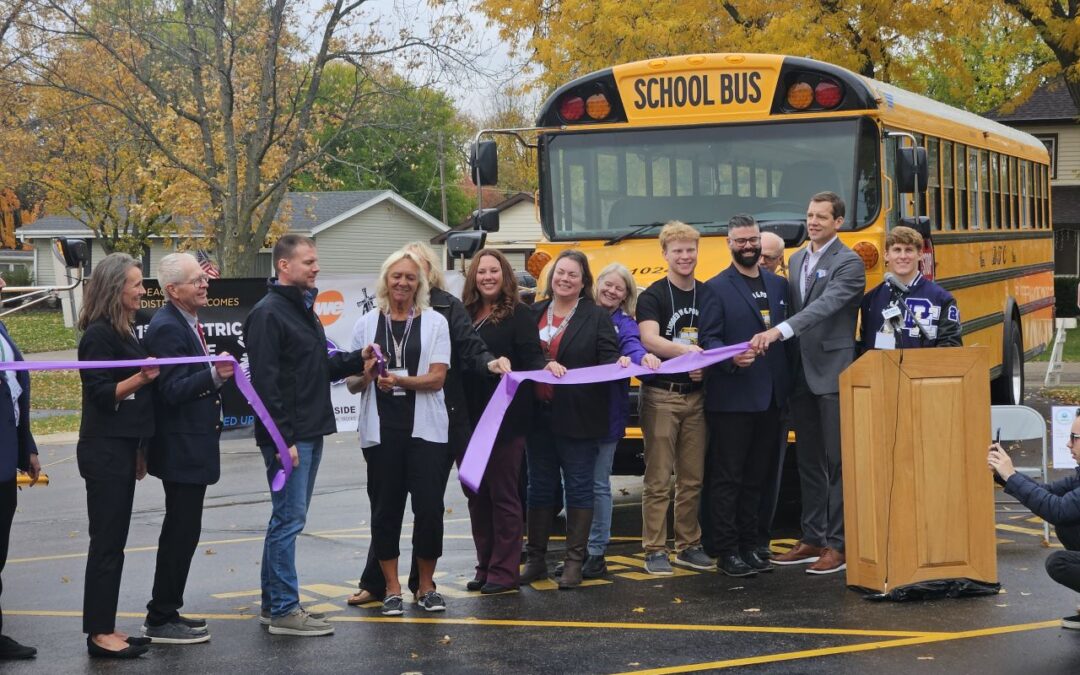
by Alex Beld | Oct 27, 2023 | Electric School Bus, Electric Vehicles, Electrification, Events
The Palmyra-Eagle Area School District, in collaboration with Dousman Transport Company, has deployed Wisconsin’s first registered electric school buses. The new buses were funded through the Environmental Protection Agency’s (EPA) Clean School Bus Program.
The community joined the district for a celebration on Wednesday, October 25, at the Irving L. Young Community Center on the Palmyra-Eagle Middle and High School campus. Palmyra-Eagle Area School District not only has the first registered electric school buses in Wisconsin but is the first district to switch over its entire fleet to electric.
Ryan Krohn, Palmyra-Eagle School District Superintendent, said, “As we look at where we’re going, in our mission statement we talk about the word innovation, and while our school district prides itself on performance excellence, there’s also a time for us to think about the future and sustainability.”
Krohn’s Full Comments:
The new superintendent also noted that the buses will help to keep district dollars in the classroom and support learning.
When considering whether to apply for the funding former Palmyra-Eagle School District Gray asked, “What do we save in fuel costs?”
Upon learning that number he determined quickly that it was a done deal.
“We’ve got to do this, we’re talking $50,000 – $60,000 on up in fuel savings and that’s a big number to our district here,” Gray said.
The district received $2.4 million through the Clean Bus Program to acquire all six electric school buses and install charging stations. The Clean Bus Program, which is funded by the Bipartisan Infrastructure Law of 2021, covered the full cost of the buses for the district.
Fourteen additional Wisconsin schools, which also received Clean Bus Program funding, will receive their buses over the next few months.
By giving districts the opportunity to acquire these buses without having to use district dollars they are able to immediately start saving on fuel costs.
During the celebration one bus driver noted that fully charging the bus they were driving only cost $4. For perspective that’s less than a single gallon of diesel at the time of writing.
The implementation of electric buses will lead to healthier communities and smoother, quieter rides for students. Fully charged, the electric buses, manufactured by IC Bus, can travel around 135 miles. This transition to electric school buses means healthier, quieter rides for the approximately 325 Palmyra-Eagle students who currently take the bus to school.
“In all my years of administration I’ve never seen such excitement over yellow buses,” Gray said.
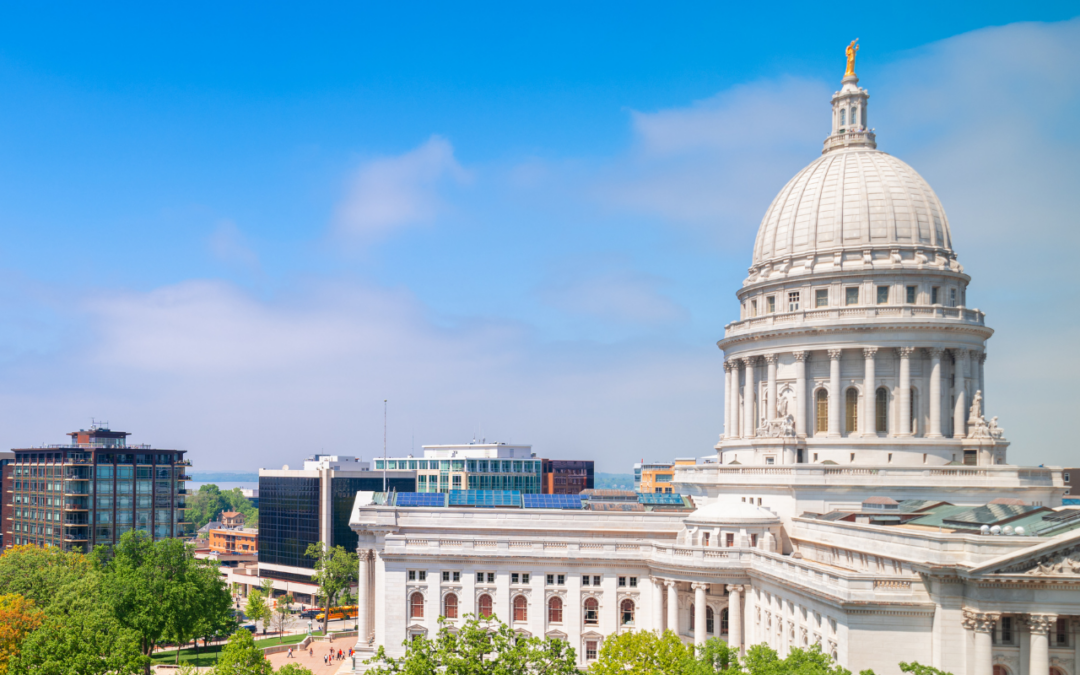
by Beata Wierzba | Oct 19, 2023 | Advocacy, Community Solar, Electric Vehicles, Legislative Watchlist, Local Government, Policy, Solar
RENEW Wisconsin remains focused on net metering and the two rate cases before the Public Service Commission of Wisconsin (PSCW). The comment periods for both cases have closed and we can expect a decision from the PSCW in early November. In the meantime, we are continuing our work to support EV charging infrastructure while also pursuing bills that would allow Wisconsin residents to participate in community solar projects.
Net Metering
In most states, when you generate electricity from solar panels on your property, you get a credit for the energy you produce, reducing your electricity purchases from the utility and some compensation for sending any excess electricity from your system back to the grid. The Public Service Commission of Wisconsin (PSCW) is nearing a decision in two net metering rate cases.
In the Alliant Energy rate case, RENEW and Alliant have agreed to preserve net metering for two years and have created a clear pathway for future rooftop solar installations. At the end of the two-year period, new Alliant solar customers will shift away from net metering and into Power Partnership, a proposal that will support the sustainability of the solar industry. The PSCW will determine if this agreement is the best path forward when they deliver their decision in November.
RENEW still believes that net metering is the best policy for Wisconsin’s current solar industry, and we remain opposed to MGE’s proposal. We look forward to a positive outcome in both cases.
- RENEW staff has testified in both rate cases before the PSCW.
- RENEW has encouraged and empowered our members and the public to support net metering through the public comments process.
- RENEW staff is engaged with state legislators, making them aware of how these rate cases will affect their constituents and the solar industry in general.
Electric Vehicle Charging
Better access to charging stations to support the electric vehicle industry is a top priority for RENEW. We continue to support efforts to remove some of the barriers in Wisconsin. Current state law limits private companies’ ability to build charging stations by only allowing electric utilities to sell electricity to the public.
- RENEW anticipates legislation (likely led by Sen. Howard Marklein) to be introduced this fall to remove some of these barriers.
- RENEW is hoping the proposed legislation would allow non-utilities to provide electricity at charging stations by using the national standard of charging by the kilowatt hour rather than by the time it takes to charge.
- RENEW staff have been in regular communication with various interested parties and we hope to see movement on this proposal soon.
- To support these efforts, we also have preliminary plans to host educational, lobbying, and test-driving electric vehicle events through the fall.
Community Solar
Wisconsin state law limits solar installations to larger utility-built projects and smaller rooftop installations on individual homes or businesses. This leaves a gap in the options available for some Wisconsinites. Allowing community-based projects for individuals to participate in solar energy generation even if they do not own the building or have adequate sun exposure would create more equity as it relates to solar generation.
RENEW Wisconsin is part of a coalition of groups that support community solar projects, along with two bills introduced earlier this year that would allow Wisconsin residents to participate in community solar projects. SB 226 was authored by Sen. Duey Stroebel, and AB 258 was authored by Rep. Scott Krug.
- RENEW is encouraging the chairman of the committee, Sen. Julian Bradley, to schedule a hearing in the fall in the Senate Committee on Utilities & Technology.
- More than 30 organizations are listed as lobbyists on the proposal, with an almost equal number for and against.
- Utility groups have strongly opposed the bills.
- Supporters along with RENEW include the Alliance of WI Retailers, NAIOP Commercial Real Estate Association, League of WI Municipalities, WI Property Taxpayer Association, and Fieldworks Power. New supporters continue to join the effort.
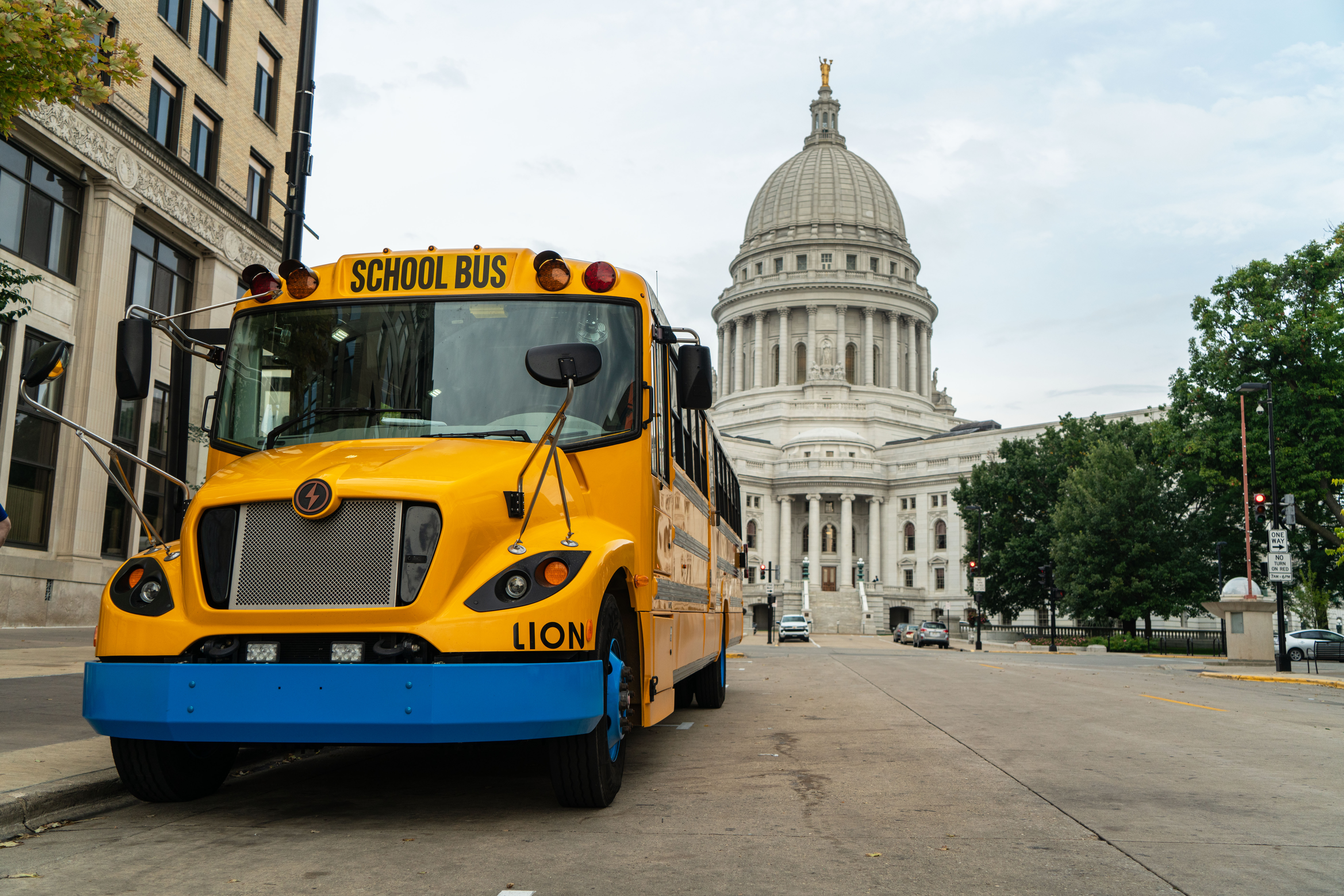
by Julia Holzschuh | Sep 29, 2023 | Electric School Bus, Electrification, Events, Uncategorized
On Wednesday, September 20, RENEW Wisconsin held multiple events focused on the benefits electric school buses (ESB) can bring to Wisconsin. The EPA’s Clean School Bus Program provides $5 billion over five years to replace existing school buses with zero-emission and low-emission models. RENEW worked with Lion Electric to bring an electric school bus to Wisconsin, promoting the health and financial benefits of clean transportation.
To start the day, RENEW held private tours of a Lion Electric school bus for Republican Legislators in conjunction with the Wisconsin Conservative Energy Forum and private tours for Democratic Legislators in conjunction with Wisconsin Conservation Voters. Both events provided a platform for attendees to ask questions about the bus and program to Lion Electric and RENEW Staff.
After the private tours, RENEW and Lion Electric staff opened the electric bus tours to the public, inviting passersby and anyone interested to ride the bus around the Capitol and ask questions of the experts.
RENEW and Lion Electric ended the day at Forest Edge Elementary School, offering the opportunity to tour the bus, hear from students why they want to electrify their school’s transportation, and tour the Forest Edge facility, Wisconsin’s first net zero school!
RENEW was grateful for the opportunity to bring an electric school bus
to the public and private sectors. The EPA announced the opening of
its 2023 Clean School Bus Program on September 28, 2023, which will remain open until January 31, 2024. To learn more or ask questions about this
program, please reach out to us at info@renewwisconsin.org.
Speeches from Forest Edge:
Why do fifth graders want Electric School Buses?
Why do Seniors want Electric School Buses?
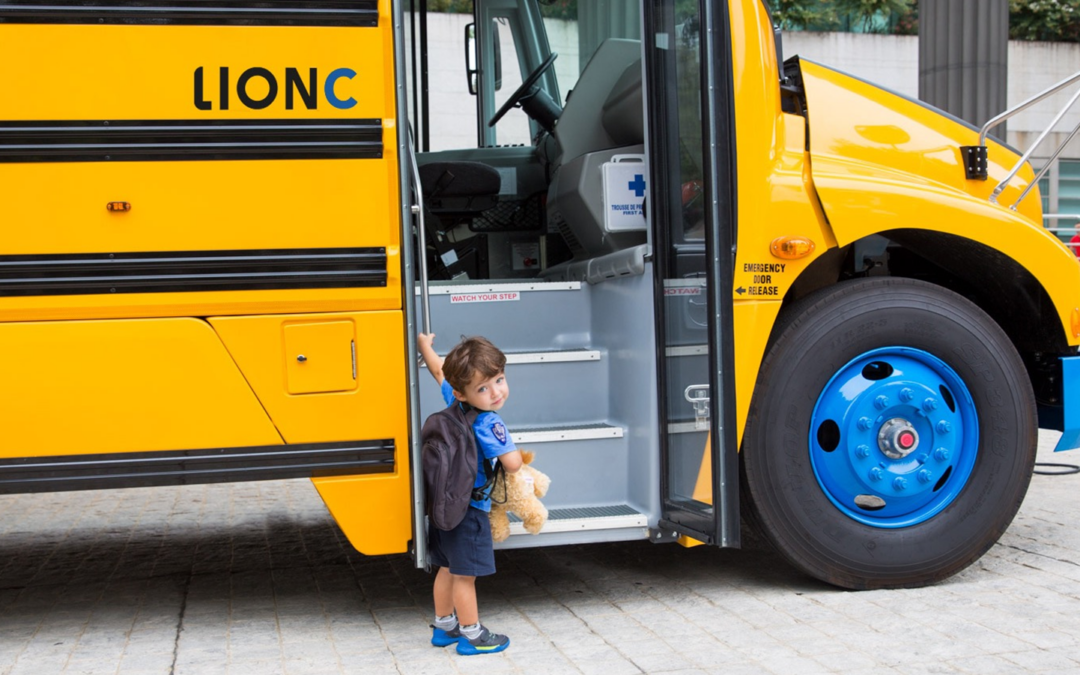
by Francisco Sayu | Sep 29, 2023 | Electric School Bus, Electric Vehicles
The EPA has made $500 million in rebate funding available for the 2023 Clean School Bus (CSB) Rebate Program. The application period opened on September 28 and will remain open until January 31, 2024. This is the second rebate funding opportunity through the multi-year funding program.
The Environmental Protection Agency (EPA) launched this program to help school districts purchase new, cleaner school buses for little or no cost. The Clean School Bus Program funds the replacement of existing diesel and gas-powered buses with cleaner buses that result in better air quality on the bus, near bus loading areas, and in the community generally. This program not only protects the health of children and the environment but also reduces operational costs for schools.
2023 Clean School Bus Rebates Overview
The EPA is prioritizing applications from high-need, rural, and Tribal school districts. There are nearly 100 Wisconsin school districts on the priority list. School Districts are eligible to receive rebates of up to $345,000 per school bus, up to 25 buses per district. These funds are also intended to cover the cost of charging infrastructure.
The deadline to apply for this year’s rebate program is January 31, 2024. School districts that previously applied for CSB funding may reapply if they meet eligibility requirements. Applicants on the 2022 CSB Rebate waitlist must also reapply.
Important Dates
Activity
|
Date
|
| Online Rebates Application Period |
September 28, 2023 – January 31, 2024 |
| Final date to submit questions |
January 10, 2024 |
| EPA reviews rebate applications and begins the selection process |
February 2024 |
| EPA notifies applicants of selection and posts selectees online. Selectees can proceed with purchasing new buses and eligible infrastructure |
April 2024 |
| Selectees submit Payment Request Forms with purchase orders |
April 2024 – October 2024 |
| Deadline to receive new buses, install EV chargers, replace old buses, and submit final documentation |
April 2026 |
The following entities are eligible to apply for EPA school bus rebates:
- State and local governmental entities that provide bus services, such as public school districts, including charter schools, with an NCES District ID.
- Eligible contractors such as for profit or nonprofit entities that have the capacity to sell or finance clean or zero-emissions school buses or related charging infrastructure to school bus owners.
- Nonprofit school transportation associations.
- Indian Tribes, Tribal organizations, or tribally controlled schools responsible for the purchase of school buses or providing school bus service for a Bureau of Indian Affairs (BIA) funded school.
For questions about eligibility, please contact cleanschoolbus@epa.gov.
For more information on electric school buses, route planning assistance, and applying to the Clean School Bus Program, contact RENEW at info@renewwisconsin.org.
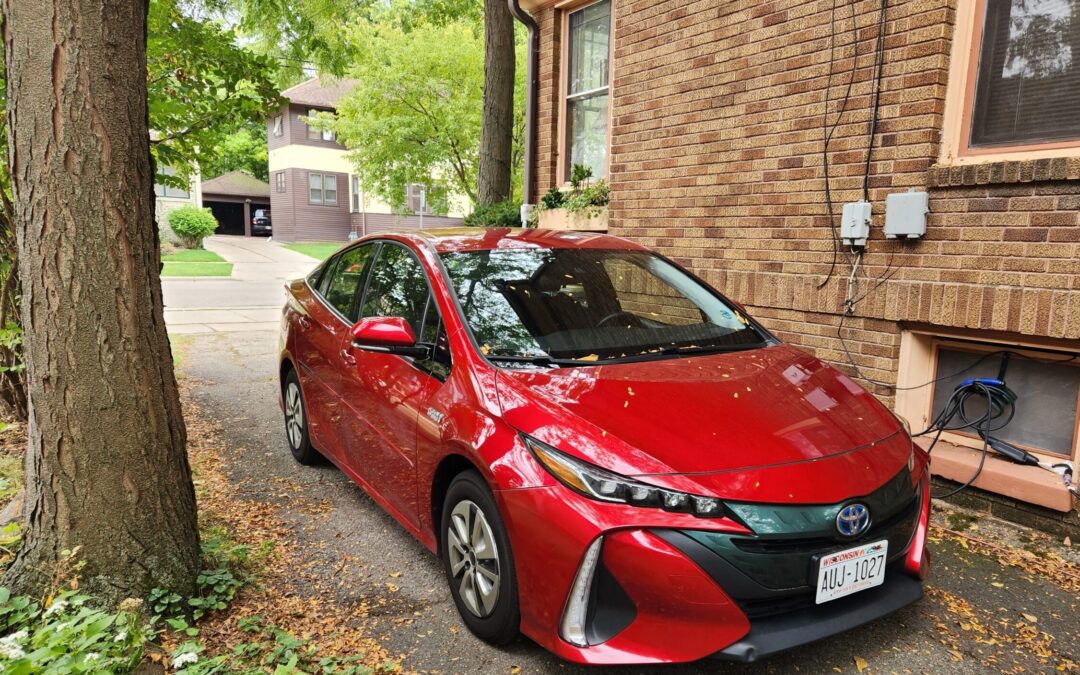
by Don Wichert | Sep 26, 2023 | Electric Vehicles, Electrification
The transition to a clean and renewable economy includes many paths from all the economic sectors. Some of the transition decisions are made by government, some by business and NGOs, and some by individuals. When it comes to individuals, there are multiple options, such as where we live, our homes and how we live in them, what we eat, what we throw away, and how we travel, to name a few.
When it comes to getting around, the options are varied: walking, biking, ride-sharing, using public transportation, and driving a car, whether gas or electric. In most cases, it’s a combination of these options.
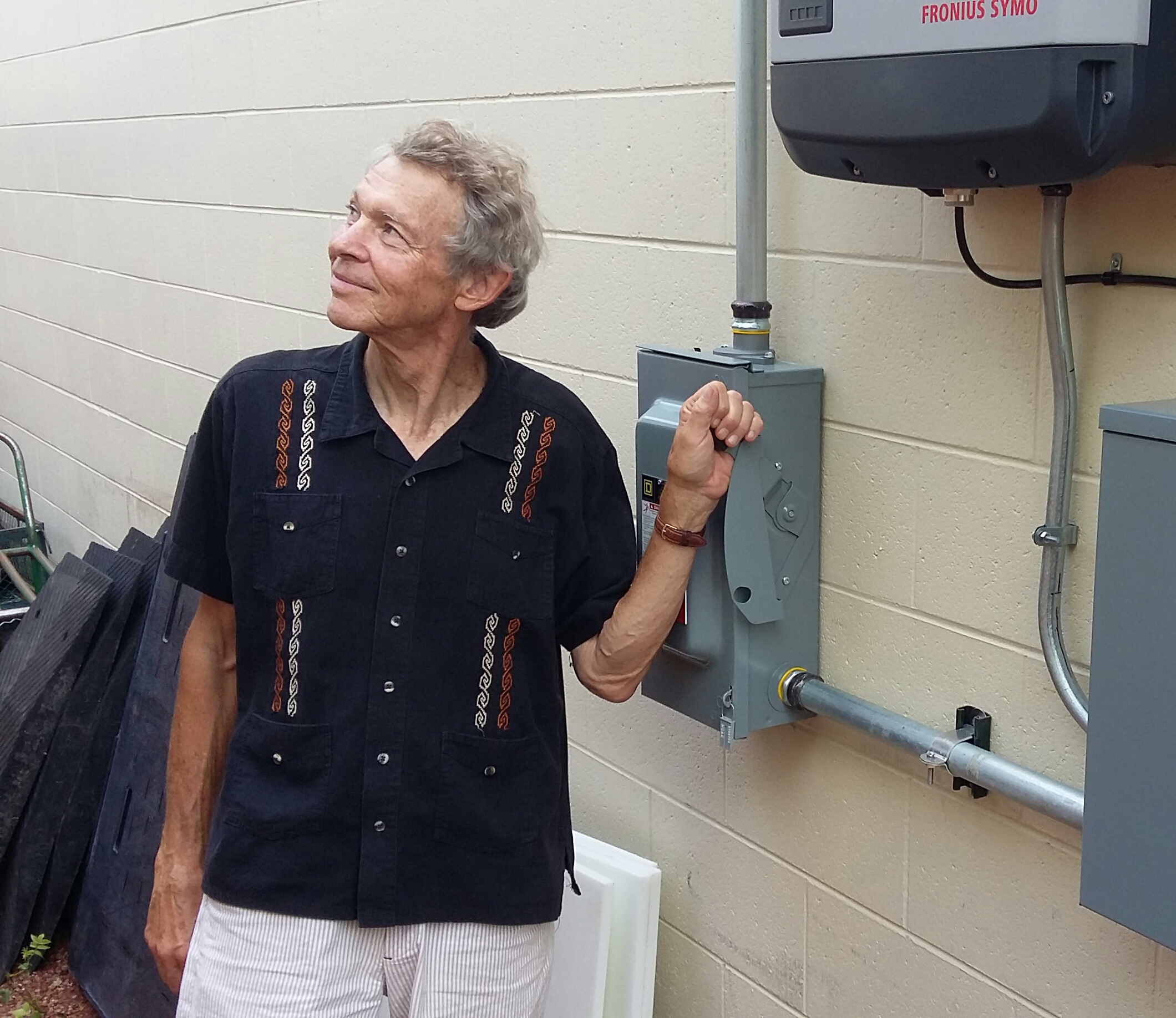 As a self-proclaimed energy geek, I take pride in regularly assessing my energy footprint. I’ve been doing this since the first Earth Day in 1970 when I was a junior in college (yes, I’m dating myself!). I’ve also been labeled as “frugal” by my friends and acquaintances, an apt label considering I still have some shirts from the 1970s. Both my educational training and work in the clean energy space over 40-plus years allow me to tackle both energy and financial impacts systematically.
As a self-proclaimed energy geek, I take pride in regularly assessing my energy footprint. I’ve been doing this since the first Earth Day in 1970 when I was a junior in college (yes, I’m dating myself!). I’ve also been labeled as “frugal” by my friends and acquaintances, an apt label considering I still have some shirts from the 1970s. Both my educational training and work in the clean energy space over 40-plus years allow me to tackle both energy and financial impacts systematically.
This particular skill set came in handy when my 2010 Toyota Prius, with 135,000 miles, started to show signs of age and expense. It was time to use my energy assessment tools and frugal habits to select the best vehicle that fit my values. For me, the decision was based on current and future driving patterns, energy and environmental impact, and price ( incentives included).
I walk or bike for most of my short trips in Madison, WI, that are 5 miles or less. My partner of eight years lives almost 10 miles away, and I usually drive to her place three or four times each week. We are both retired and go on occasional daily or weekly road trips that can be hundreds of miles away.
The Inflation Reduction Act now offers up to $4,000 tax credit for qualified used plug-in hybrid electric vehicles that are at least two years old, are purchased after December 31, 2022, from a certified car dealer, cost less than $25,000, and have 7 KW or higher battery storage. To be eligible for the tax credit, an individual must have an Adjusted Gross Income of $75,000 or less and $150,000 or less for married couples for the current or previous tax year.
So, for me, the goal was to find a plug-in electric hybrid that delivered at least 25 miles on electric power, got good gas mileage, had less than 50,000 miles on the odometer, and would qualify for the federal tax credit.
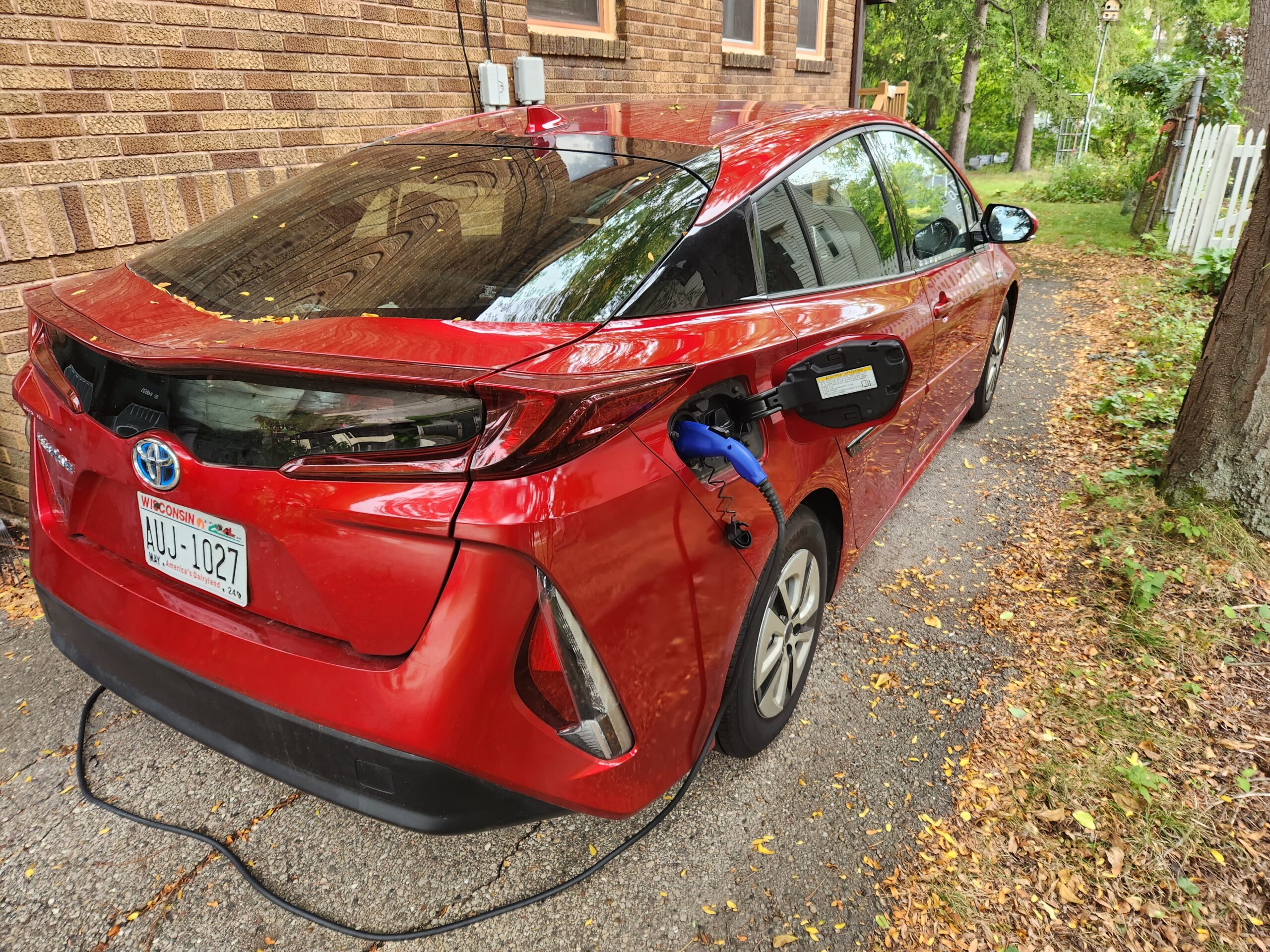 The most likely candidates to fit these requirements were the Toyota Prius Prime, the Hyundai Ionic, and the Kia Niro. All three could be charged overnight using a standard 120-volt outlet, which I had next to my driveway. There are pros and cons for each of these, based on personal preferences and price. In total, my search lasted about six months.
The most likely candidates to fit these requirements were the Toyota Prius Prime, the Hyundai Ionic, and the Kia Niro. All three could be charged overnight using a standard 120-volt outlet, which I had next to my driveway. There are pros and cons for each of these, based on personal preferences and price. In total, my search lasted about six months.
Major online car retailers, like Carfax and Autotrader, helped to determine what was available within a reasonable distance from Madison. Unfortunately, I was unable to find eligible vehicles in the immediate Madison area during this time period. Locating an eligible vehicle for less than $25,000 was also a major limiting variable.
Eventually, I found and purchased a 2018 Toyota Prius Prime from a car dealership in Eau Claire, WI, that met my requirements. After almost three months of charging and driving, I’m pleased with my purchase. The car has been delivering a pretty standard 30-31 miles on pure electric power in town, and 54 to 58 miles per gallon.
After about 2,000 miles I’ve used just 15 gallons of gas. Depending on my final tax status, I’ll have a highly energy-efficient and environmentally friendly vehicle for about $20,000. This definitely meets my energy and frugality goals. I credit the Inflation Reduction Act as key in focusing my attention on a vehicle that allowed me to fulfill my goals.
– Don Wichert
Emeritus Board Member and Founder of RENEW Wisconsin





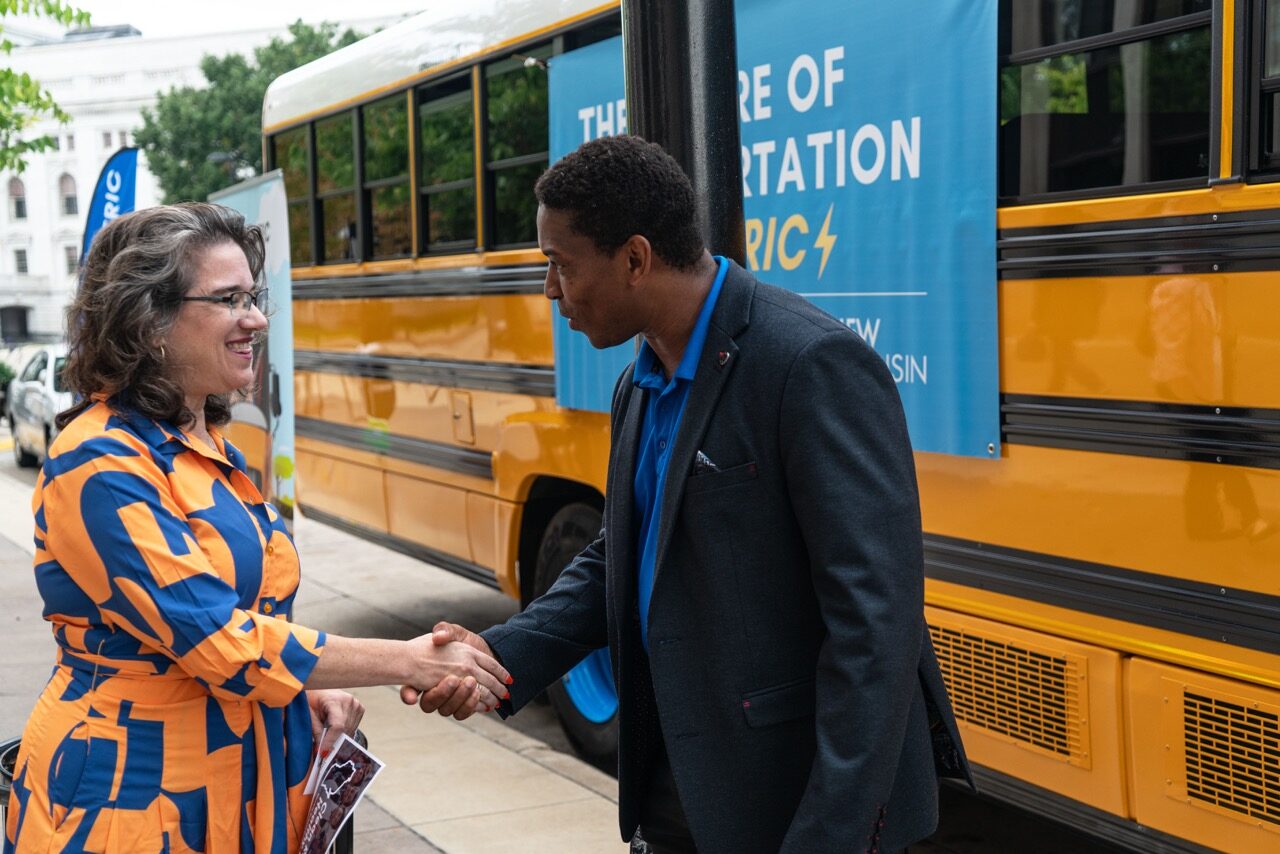
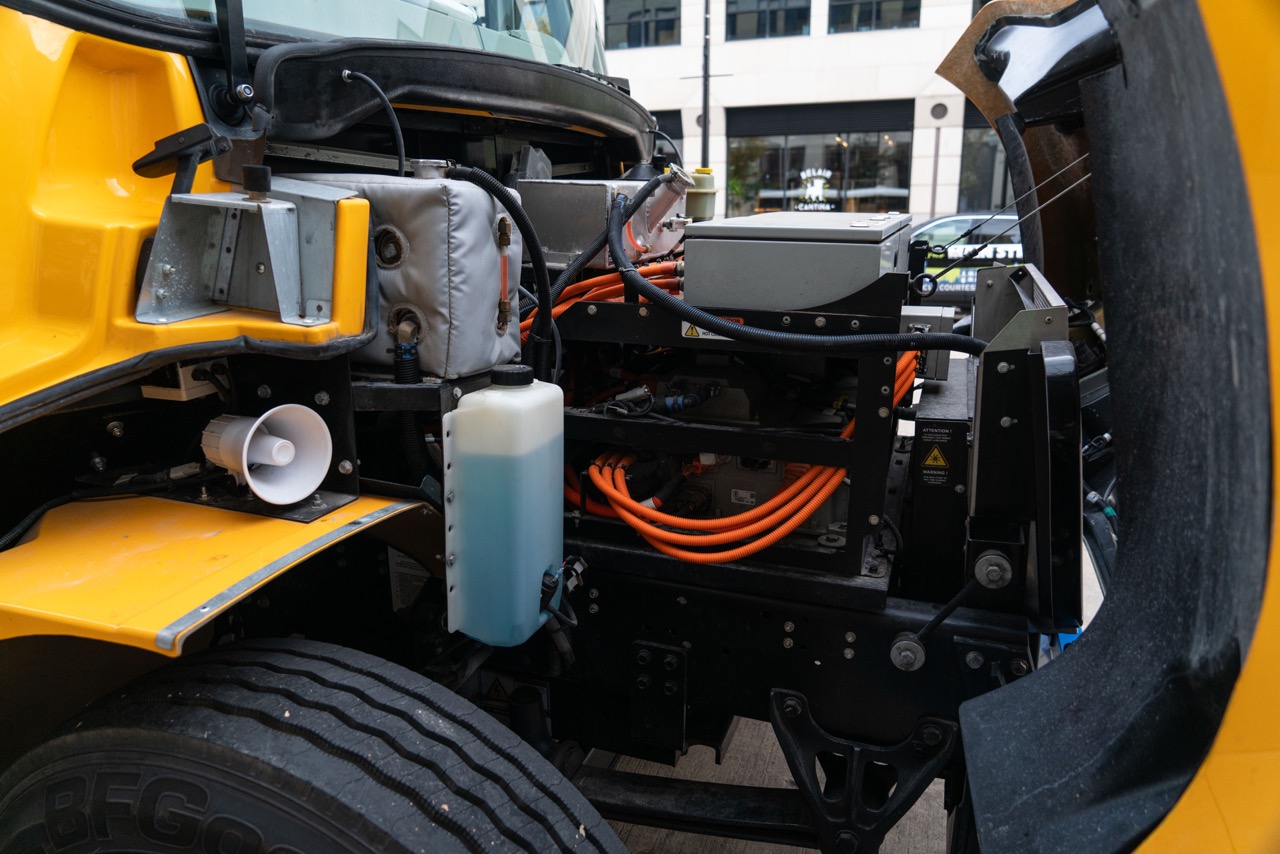
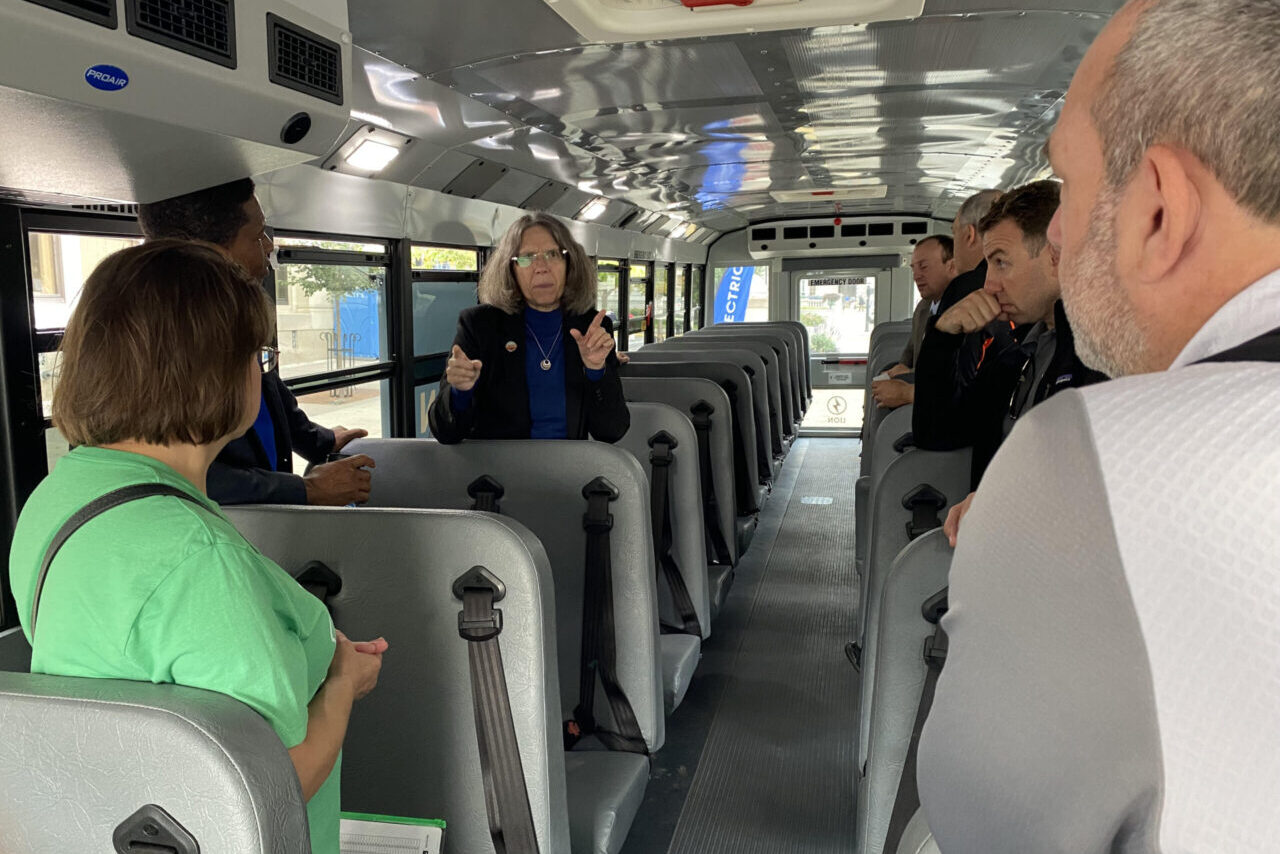
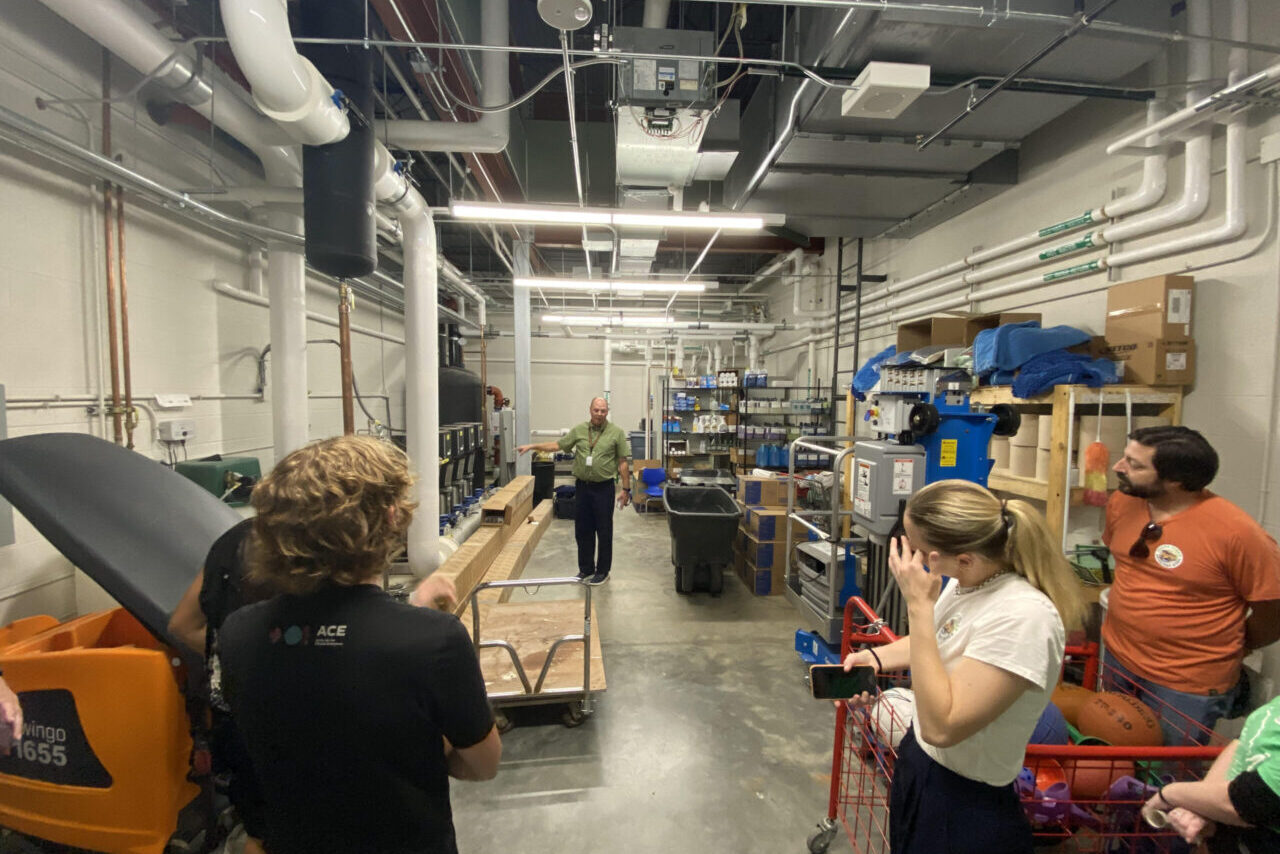


 As a self-proclaimed energy geek, I take pride in regularly assessing my energy footprint. I’ve been doing this since the first Earth Day in 1970 when I was a junior in college (yes, I’m dating myself!). I’ve also been labeled as “frugal” by my friends and acquaintances, an apt label considering I still have some shirts from the 1970s. Both my educational training and work in the clean energy space over 40-plus years allow me to tackle both energy and financial impacts systematically.
As a self-proclaimed energy geek, I take pride in regularly assessing my energy footprint. I’ve been doing this since the first Earth Day in 1970 when I was a junior in college (yes, I’m dating myself!). I’ve also been labeled as “frugal” by my friends and acquaintances, an apt label considering I still have some shirts from the 1970s. Both my educational training and work in the clean energy space over 40-plus years allow me to tackle both energy and financial impacts systematically. The most likely candidates to fit these requirements were the Toyota Prius Prime, the Hyundai Ionic, and the Kia Niro. All three could be charged overnight using a standard 120-volt outlet, which I had next to my driveway. There are pros and cons for each of these, based on personal preferences and price. In total, my search lasted about six months.
The most likely candidates to fit these requirements were the Toyota Prius Prime, the Hyundai Ionic, and the Kia Niro. All three could be charged overnight using a standard 120-volt outlet, which I had next to my driveway. There are pros and cons for each of these, based on personal preferences and price. In total, my search lasted about six months.